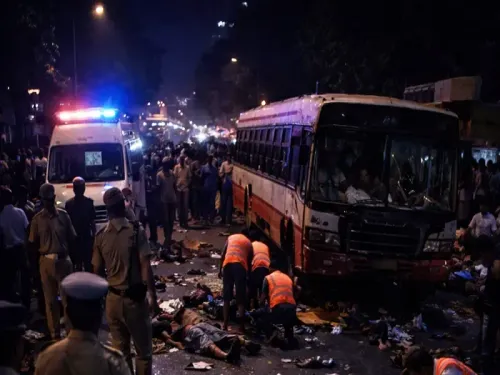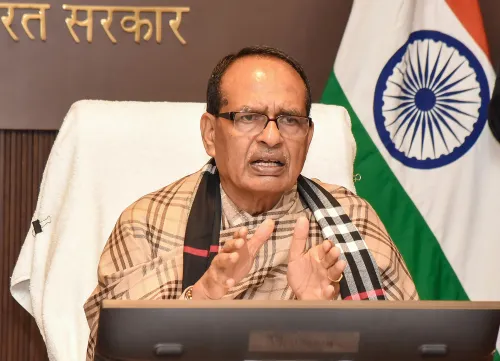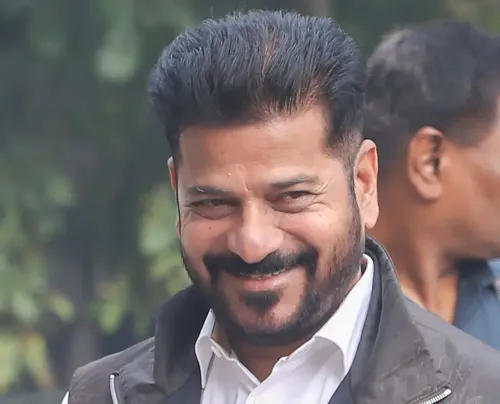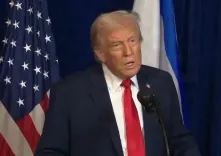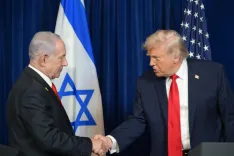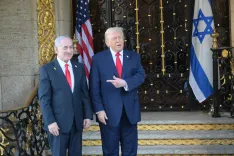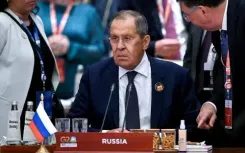Has Pak Army spokesman echoed Hafiz Saeed's threats to India regarding the Indus Waters Treaty?
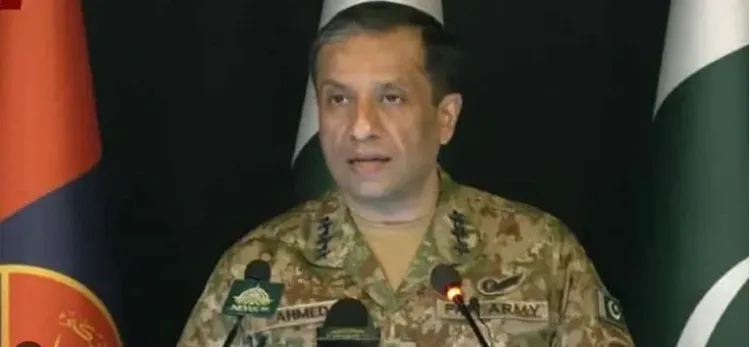
Synopsis
Key Takeaways
- Pakistan's military spokesperson warns India over water treaty.
- India suspends the Indus Waters Treaty amid rising tensions.
- Statements echo Hafiz Saeed's hostile rhetoric.
- Future talks will focus on the return of Indian territories.
- India emphasizes that terror and dialogue cannot coexist.
Islamabad, May 23 (NationPress) The spokesperson for the Pakistani military, Lieutenant General Ahmed Sharif Chaudhry, has issued a stern warning to India, echoing sentiments previously expressed by the Lashkar-e-Taiba (LeT) leader, Hafiz Saeed.
During an address at a university in Pakistan, he commented on India's recent decision to suspend the Indus Waters Treaty until Islamabad takes steps to eliminate terrorism and ceases its support for terrorist organizations operating from its territory.
Chaudhry's remarks followed India's suspension of the water-sharing agreement after a tragic terror attack in Pahalgam, Jammu and Kashmir, which resulted in the deaths of 26 individuals. He stated, “If you block our water, we will choke your breath.”
This rhetoric closely resembles that of Hafiz Saeed, the architect of the 2008 Mumbai terror attacks, who is notorious for inciting hostility against India and the United States.
In a widely circulated video on social media platform X, Hafiz Saeed is heard making similar threats.
India's suspension of parts of the Indus Waters Treaty on April 23 came in response to the aforementioned attack. This treaty, established in 1960 and facilitated by the World Bank, regulates the distribution of the Indus River and its tributaries between Pakistan and India.
New Delhi has consistently stated that “blood and water cannot flow together; talk and terror cannot coexist,” reinforcing its firm stance against Pakistan's alleged support for cross-border terrorism.
The treaty's suspension is part of a broader strategy to counteract Islamabad, including the recent “Operation Sindoor”, launched on May 7 against nine terrorist hideouts in Pakistan and Pakistan-Occupied Kashmir.
The Ministry of External Affairs (MEA) of India declared that any future negotiations with Pakistan will be limited to discussions regarding the return of illegally occupied Indian territory in Jammu and Kashmir.
MEA spokesperson Randhir Jaiswal emphasized that “terror and talks can't coexist,” making it clear that India is only interested in conversations about the extradition of wanted terrorists already identified and shared with Islamabad.
He reiterated India's position on the Kashmir issue, stating, “Any bilateral discussion will only focus on the return of illegally occupied Indian territory by Pakistan.”
Regarding the suspended Indus Waters Treaty (IWT), Jaiswal confirmed that it will remain in abeyance until Pakistan takes credible and irreversible measures to cease its support for terrorism.
He echoed Prime Minister Modi's assertion: “Water and blood cannot flow together,” indicating a hardening of India's stance on the historic water-sharing accord.
In another significant development, two staff members of the Pakistan High Commission in New Delhi were declared ‘persona non grata’ due to activities incompatible with their official roles.
“One has already departed from India, while the other was given 24 hours to leave,”
said Jaiswal, underlining the seriousness of their actions.
Earlier, Prime Minister Narendra Modi delivered a powerful message at a public rally in Bikaner, Rajasthan, warning Islamabad that it would have to “struggle for every penny” if it continues its support for terrorism and that it would not receive India’s rightful share of water under the current treaty. “Playing with the blood of Indians will now cost Pakistan dearly,” he added.



